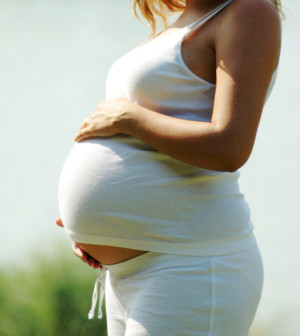- Cancer Takes Tough Toll on Family Finances
- You Might Fare Better If Your Doctor Is Female, Study Finds
- CDC Launches Online ‘Heat Forecaster’ Tool as Another Summer Looms
- Biden Administration Sets Nursing Home Staffing Minimums
- Neosporin Ointment in the Nose Might Be Potent Antibiotic
- Physical Ills Often Plague People With Schizophrenia, Bipolar
- Taking Psilocybin for Depression? Relationship With Therapist Is Key
- Stick to Heimlich Maneuver Not ‘Anti-Choking’ Devices, FDA Says
- Women in the Military at Risk for Low-Weight Babies
- Repeat Blasts Can Damage Soldiers’ Brains, Study Confirms
Teen Pregnancy Rates Much Higher for Girls With Serious Mental Illness: Study


Teenage girls diagnosed with major mental illness are much more likely to give birth, according to a new study from Canada, suggesting such girls should become a special target for anti-pregnancy efforts, the researchers say.
The investigators also found that birth rates haven’t dipped as fast in mentally ill girls as they have in other girls, an indication that those with psychological problems may be less affected by overall trends in teen pregnancy.
The study doesn’t examine statistics from the United States. But study lead author Dr. Simone Vigod, an assistant professor of psychiatry at the University of Toronto, said they are probably similar.
“We’re doing a good job overall of preventing pregnancy in teenagers, but we need to attend to the fact that girls with major mental health issues are not having the decrease in pregnancy rate that we expect from other girls,” she said. “How can we do a better job?”
Health officials worry about teen births because adolescent mothers often aren’t prepared to handle motherhood either financially or emotionally, and may face more health risks from pregnancy. The good news: According to the U.S. Department of Health and Human Services (HHS), the nation’s teen pregnancy rate has been tumbling for two decades, falling by nearly half since 1991.
In 2012, the birth rate for girls aged 15 to 19 was 29 for every 1,000. About 89 percent of the births were in unmarried girls and young women. Hispanics and blacks are much more likely than whites to give birth as teens, according to HHS.
Still, the numbers of teen births are fairly high: By one estimate based on 2010 figures, one in every seven adolescent females in the United States will give birth before age 20.
In the new study, researchers tracked girls aged 15 to 19 for 10 years in the Canadian province of Ontario. The number of girls monitored over 12-month periods ranged from about 380,000 to nearly 440,000.
The birth rate for the girls diagnosed with major mental illness was 45 per 1,000, compared with 15 per 1,000 among the other girls. Also, birth rates over the decade dipped more — by 22 percent — among the other girls compared with a decrease of 14 percent for those diagnosed with mental illness.
The authors noted some caveats: The study doesn’t look at abortions, stillbirths or miscarriages, and some girls with major mental illness wouldn’t have been diagnosed.
Jaimee Heffner, a staff scientist at the Fred Hutchinson Cancer Research Center, in Seattle, praised the study. Heffner, who studies teen pregnancy, said the research provides new insight into the possible connections between mental illness and teen pregnancy, a topic that hasn’t been deeply studied before.
The study doesn’t confirm a direct connection between mental illness and a higher risk of teen pregnancy.
Still, “there are a number of possible reasons for a relationship between mental illness and teenage pregnancy,” Heffner said. “For example, adolescents with bipolar disorder who are experiencing a manic episode are more likely to engage in risky sexual behaviors. It is also possible that mental illness and pregnancy share common risk factors, such as childhood sexual abuse. Adolescents with mental illness are also more likely to abuse substances, which increases the likelihood of risky sexual behavior.”
Study lead author Vigod added that being mentally ill may boost the risk of having unprotected sex, therefore increasing the likelihood of pregnancy.
“If you’re depressed or not considering the consequences of what you’re doing, or if you’re being abused, that would change how you advocate for yourself in a sexual situation,” she said.
Vigod said one approach to the issue is to focus more on mentally ill girls when groups visit high schools and talk about safer sex. For example, she said, they could focus more on how girls who feel bad about themselves can speak up and avoid having unprotected sex.
The study appeared online Feb. 10 and in the March print issue of Pediatrics.
More information
For more on teen pregnancy, try the U.S. National Library of Medicine.
Source: HealthDay
Copyright © 2024 HealthDay. All rights reserved.










